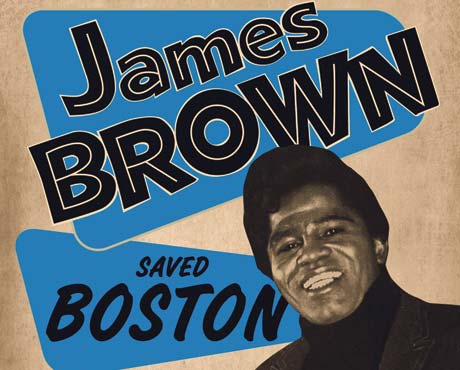James Browns career, like that of so many soul singers, benefited greatly from a constant stream of CD reissues over the years. Now that his deep well of recorded music has nearly run dry, his considerable influence on American music is being examined in other media. I Got The Feelin: James Brown In The 60s (Shout Factory) is a triple DVD set that captures Soul Brother Number 1 at the height of his powers in 1968. Two of the discs capture his late 60s show and band at their peak, when funk was brand new. However, its the other disc that makes this set so important. Entitled The Night James Brown Saved Boston, its a documentary of how JB prevented riots in Boston following the assassination of Martin Luther King Jr.
Brown was due to play the city the day after Kings murder. He made a deal with the mayor to televise his concert live at the Boston Garden. Upon its conclusion, the tape was re-run throughout the night of April 5, 1968, which encouraged folks to stay home and watch TV rather than take to the streets. Unlike so many other cities in America, Boston remained quiet that night. The documentary pieces together how it all came about, and the social, musical and political context surrounding the situation. The concert itself is represented in full on one disc. Its a thrilling document, with all the tension of Gimme Shelter, but with potentially more serious consequences. The show almost boils over at one point, but Brown manages to take command of the situation and restore peace.
For further JB examination, pick up The James Brown Reader (Plume), which brings together five decades of JB reportage. With entries written by black, white, male, female, American and international contributors, the book is as much about the evolution of music criticism as it is the constantly changing perspectives on its subject.
Brown was due to play the city the day after Kings murder. He made a deal with the mayor to televise his concert live at the Boston Garden. Upon its conclusion, the tape was re-run throughout the night of April 5, 1968, which encouraged folks to stay home and watch TV rather than take to the streets. Unlike so many other cities in America, Boston remained quiet that night. The documentary pieces together how it all came about, and the social, musical and political context surrounding the situation. The concert itself is represented in full on one disc. Its a thrilling document, with all the tension of Gimme Shelter, but with potentially more serious consequences. The show almost boils over at one point, but Brown manages to take command of the situation and restore peace.
For further JB examination, pick up The James Brown Reader (Plume), which brings together five decades of JB reportage. With entries written by black, white, male, female, American and international contributors, the book is as much about the evolution of music criticism as it is the constantly changing perspectives on its subject.
